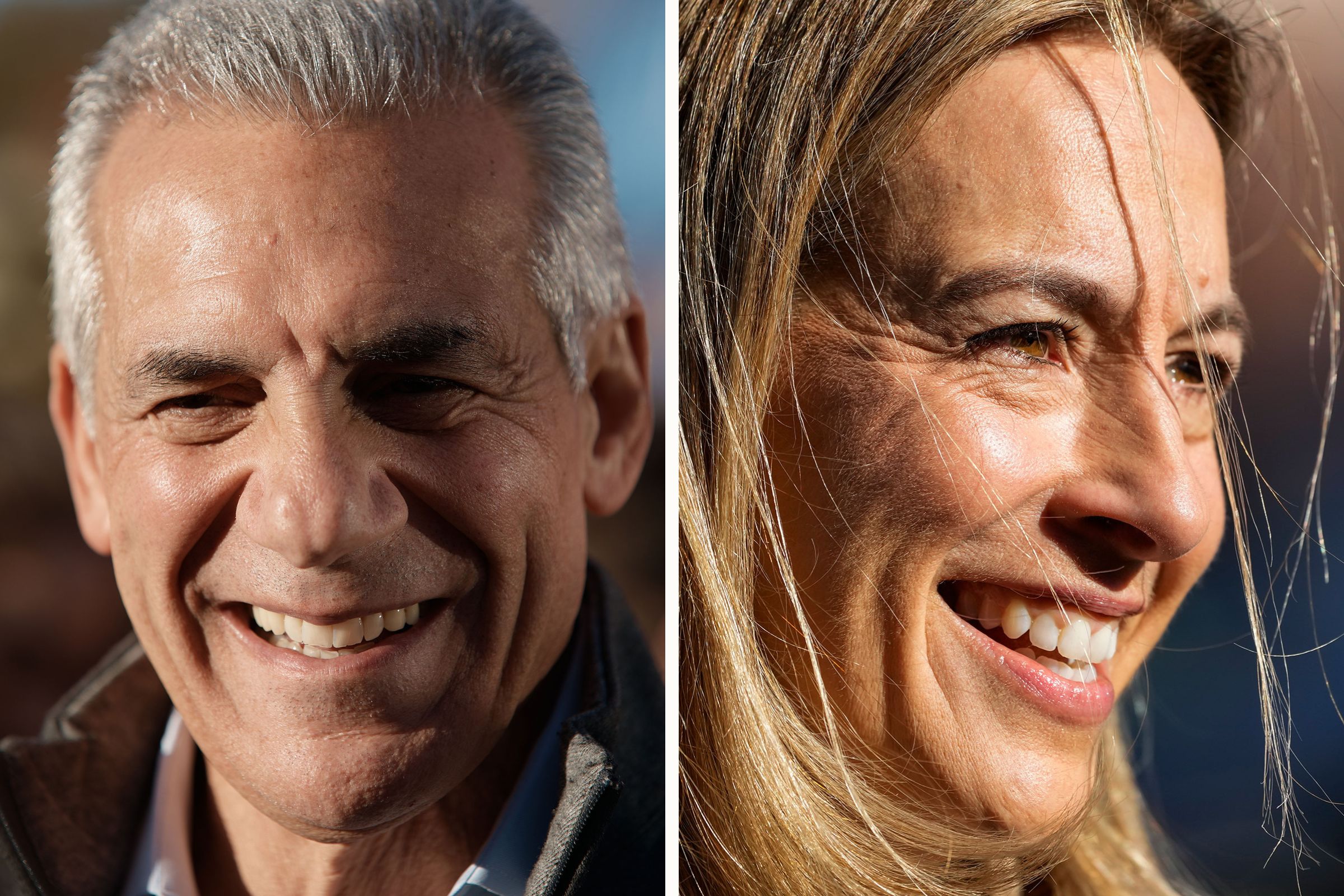Democrats will hold onto the governorship of New Jersey as Rep. Mikie Sherrill defeated Republican Jack Ciattarelli in the most closely watched gubernatorial race of the year, offering her party a much-needed boost after months of political uncertainty under the Trump Administration. The Associated Press called the race for Sherrill shortly after the polls closed on Tuesday night.
[time-brightcove not-tgx=”true”]
Sherrill, 53, a former Navy helicopter pilot and federal prosecutor who was elected to Congress in the Democratic wave of 2018, emerged victorious after a bruising campaign that tested her reputation as a moderate in a state that has shifted towards Republicans in recent years. Her win extends Democratic control of the governor’s mansion to a third consecutive term and cements her status as one of the party’s rising national figures.
Early returns indicated that Sherrill was running ahead of outgoing Democratic Gov. Phil Murphy’s performance in 2021 in several counties, including the heavily populated Bergen County in north New Jersey.
It was a strong night for Democrats across the country as they also picked up the governorship of Virginia with Rep. Abigail Spanberger’s win over Republican Winsome Earle-Sears, the state’s current lieutenant governor who, unlike Ciattarelli, did not receive President Donald Trump’s endorsement.
Both Sherrill and Spanberger, who were Capitol Hill roommates, represent the more moderate wing of the Democratic party, and many party strategists are likely to point to their campaigns as the formula for winning in competitive states in next year’s midterm elections.
Sherrill’s campaign had focused on restoring trust in government, fixing New Jersey’s troubled infrastructure, and lowering costs for middle-class families. Ciattarelli, backed by Trump, sought to turn the race into a referendum on high taxes and the rising cost of utility bills. But his alignment with Trump, who remains deeply unpopular in New Jersey, ultimately limited his appeal in the state’s populous suburbs.
Her victory also carries national implications for Democrats, who are struggling to chart a path between progressive energy and centrist caution ahead of the 2026 midterms. She entered the race as the favorite but faced deep skepticism from both progressives and disaffected Democrats. She had angered some loyalists by being among the first Democratic lawmakers to urge former President Joe Biden to step aside after his halting debate performance in the summer of 2024, a move she admitted at the time could “ruin” her career. Yet her decision helped distinguish her from a political establishment many voters had come to distrust.
Her campaign emphasized steady governance over ideological purity. She vowed to freeze electric utility rates, repair the state’s overburdened rail infrastructure, and deliver with “ruthless competence.”
Throughout her campaign, Sherrill worked assiduously to link Ciattarelli to the sitting President. She brought former President Barack Obama to campaign with her and sought to nationalize the race and effectively turn the off-year gubernatorial contest into a referendum on Trump in a state he lost all three times he was on the ballot.
She called her rival “100% MAGA” and “the Trump of Trenton.” Her closing message drew a direct line between Ciattarelli’s policies and Trump’s threats to kill the $16 billion Gateway Tunnel project, which would connect New York City to New Jersey via two new tunnels under the Hudson River. Ciattarelli told TIME in an interview last month that he had not asked Trump to restore funding for the Gateway Tunnel, which he insisted was not in danger and was simply being used by the President as a “chess piece in hardball negotiations” with Democrats in Congress to end the federal government shutdown.
“He’s shown zero signs of standing up to this president,” Sherrill said of her opponent at an October debate.
Sherrill’s victory extends Democratic control of the governor’s office in New Jersey to a third term—something the party has not achieved since 1961.
Ciattarelli centered his campaign on lowering electricity bills and taxes. He also tried to carefully distance himself from Trump, while also vowing to foster a productive working relationship with the Administration on issues like immigration enforcement.

